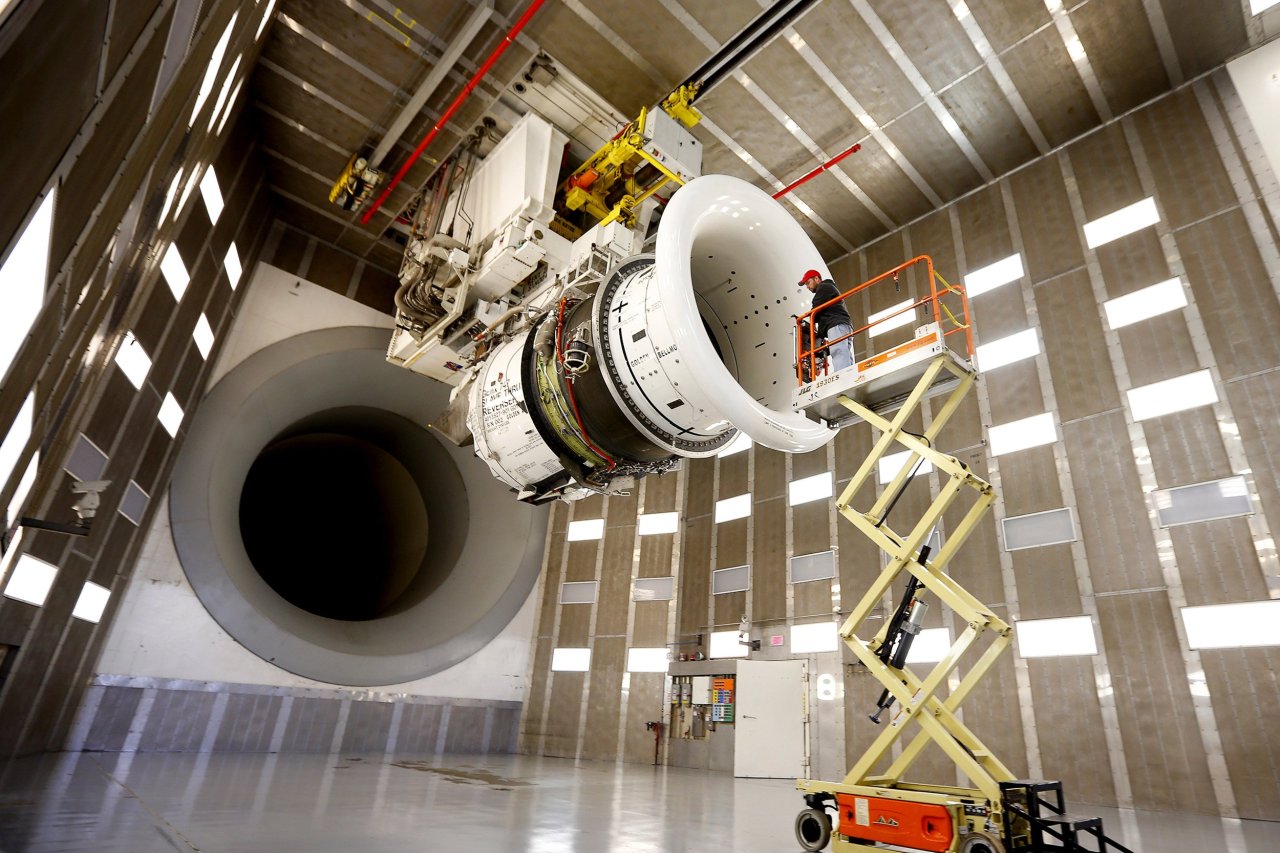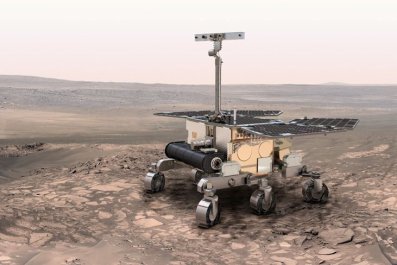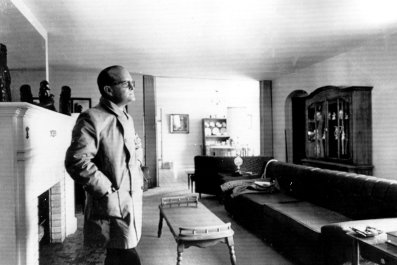Call this: Revenge of the Suits.
In technology circles, everybody knows startups are da bomb. They're the disruptors, the innovators, the stuff of investor fantasies. We thank heaven entrepreneurs bless us with their zeal and lead the world into the future.
And what about the large, established tech companies like General Electric, IBM or LG? They're often perceived like the parents in a Peanuts TV special, with nothing important to say: "Wa-wa wa-wa-wa wa." They move like Mick Jagger—in his 70s. They're basically piñatas for the startups to whack.
But in this hyperconnected age, big companies are gaining an interesting new advantage. They have two things startups increasingly hunger for: data and time.
The data virtue was on display at the 2015 Consumer Electronics Show (CES), which just drew 160,000 attendees to Las Vegas. All around the floor, giants such as LG, Samsung, Sharp and Sony set up booths the size of Downton Abbey to show off their curved 4K TVs and bendable phones. Common to almost all of these crowd-pleasing products are recent breakthroughs in the technology of glass—breakthroughs that came out of Corning, a corporate giant born in 1851.
At Corning's modest booth, tucked toward the back of the CES floor near an Indian food cart, Senior Vice President Jeffrey Evenson talked about the company's approach to research and development. Corning invented fiber optics and the Gorilla Glass that covers most of our smartphones, so it already has a great store of data about glass chemical properties and manufacturing processes. But now Corning can arm factories and labs with swarms of networked sensors that constantly generate data about glass-making—data never before captured.
That data is now Corning's competitive advantage, feeding powerful computers that can model new glass compositions and predict how they'll perform, so the lab can experiment rapidly. A decade ago, almost all of Corning's R&D was aimed at 10 or 15 years out. Now, if a customer articulates a problem—like needing radically thinner glass for a TV the thickness of a magazine or a phone that can fold like a wallet—the computer models help Corning respond quickly. "That's why you're seeing such fast cycles in TVs," Evenson said. "We're doing fast R&D." The data makes it possible.
That conversation reminded me of one I had months earlier with Michael Idelchik, GE's vice president of advanced technology programs. GE builds jet engines for most of the airlines. These days, the engines are loaded with sensors that gather a terabyte of data on every flight. The data is getting so detailed, and the computer models of engines so good, GE can understand the different ways jets perform in cities that have different altitudes, pollutants, winds and so on.
The company then uses the computer models to constantly tweak engines and tune them based on the primary routes they fly. If a startup even dreamed of competing in jet engines, it would take decades to catch up to GE's trove of data and match the sophistication GE can build into the technology.
This same kind of thing is happening throughout industry. In the emerging Internet of Everything, smart companies are turning activity in the physical world into data, and they are turning that data into models that let them understand more and react faster than competitors. The best data wins. And a big retailer, airline, food company or steelmaker has more ways to collect better data than any upstart.
And what about time? Every kind of company has less of a time window than it used to, but startups now have to run like the Road-Runner on meth. A recent research project (which I helped write) looked at one measure of the pace for startups—called Time to Market Cap—and found that the speed at which a startup needs to grow is three times faster than it was just a dozen years ago. Startups have no time to develop deep, complex technology.
Yet society badly needs deep, complex technology. On January 14, IBM unveiled its latest System z mainframe computer, a monster of new technology that took five years to develop. Mainframes might seem dull as wire hangers compared with new stuff like Uber or Slack, but every major bank in the world relies on IBM mainframes, as do thousands of companies from Priceline to Kenya Power.
When competing with young companies, time is on IBM's side. Established companies "often have essential and very valuable assets such as expertise, intellectual property, supply chain relationships and strong customer loyalty," says Larry Downes, co-author of Big Bang Disruption. These things, together, buy time. At startups, such assets are rare. Yet because no balance sheet includes a column for time. "It's very hard in [big] public companies for managers to recognize that's where the value is," Downes adds.
In fact, a lot of corporate executives try to make their companies operate more like startups. But it's usually not a good idea to try to be something you're not. Corporations can't compete head-on against the agility and fervor of a small band of believers. They should, instead, embrace their unique advantage.
Nobody is suggesting that big players are going to suddenly steal the show from startups. But over the past 20 or 30 years, the big players have often been on the run, staring down "disruption" from freewheeling small companies. What's new is that big companies can deploy data and time to make themselves important and relevant in technology. After all these years of hoodies and Birkenstocks, suits are coming back in style.




























